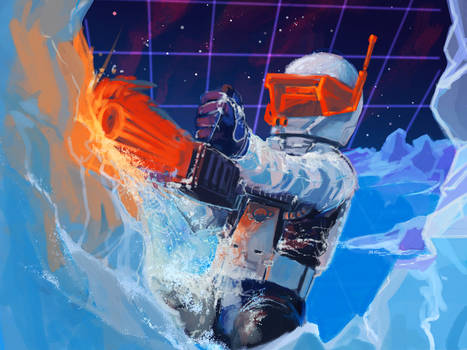For me its probably the Tao Te Ching for its spiritual wisdom as well as the courage to be disliked for how it introduced me to Adlerian psychology and teleology.
Hard to pick a favorite, three good ones that come to mind are:
1453: The Holy War for Constantinople and the Clash of Islam and the West Roger Crowley
It’s a history book that written with a very good flow while keeping the events intelligible.
Hell’s Angels: The Strange and Terrible Saga of the Outlaw Motorcycle Gangs by Hunter S. Thompson
Yes, that Hunter S. Thompson. I actually like it a lot more than his later books. HST adds his own flair but actually stays on topic of talking about motorcycle gangs. As opposed to his later books where no matter what they are supposed to be about he just rants about drugs and how much he hates Nixon.
The Men Who Stare at Goats by Jon Ronson
Theoretically the movie was based on this book, but ignore that, since the movie took one chapter’s subject matter and created whole cloth fiction about it. The book was actually a very good write up of various unusual and perhaps absurd expenses by the US government. Some of them as outlandish as using new age psychic powers, some as mundane as hiring unqualified security guards and not doing background heck’s before paying them as high dollar PMCs in early Iraq.
A Short History of Nearly Everything by Bill Bryson. It goes over a lot of general knowledge and science, including the history of those discoveries, in a way that’s conversational and so engaging. I wish I could find more books like it, so I’m open to suggestions!
Try “The body”, which is also by him! It is about the human body.
Caste by Isabel Wilkerson - opened my eyes to the true history of race and how it is used in the US to oppress and marginalize
Anarchy Works by Peter Gelderloos - one of the most comprehensive yet easily digested books that successfully answers many of the fundamental questions we ask about anarchism as well as some of the silly misconceptions people might have
Cannabis by Box Brown - really approachable history of the Illegalization of cannabis
All these books really opened my eyes, I guess you could say
I had a bit of a World War II kick for a bit, focusing on lesser known topics. I forget the actual titles of some of these, but if you’re into this sort of history…
Look up books on Colditz castle during WWII. This is a Renaissance era castle on a hilltop surrounded by a town that the Germans turned into a POW camp. They moved a lot of POWs there that were causing trouble at other prison camps by their constant escape attempts. They felt that the castle would make an excellent escape-proof prison. But by grouping a lot of talented escapers together the Germans were proven wrong again and again.
What I found most enjoyable about reading books on Colditz was the different perspectives. I think the most popular book was written by a former POW, which makes sense. But I also found a book in our library that was written by the former German commandant of the prison. Reading both perspectives was a real eye opener.
Another WWII book I read was called “The War Magician” by Jasper Mascalyne (sp?). He was a well known stage magician in London before the war, and used his skills to help confuse & distract the Germans. He was one of the people who helped do things like make tank battalions appear by making plywood cutouts of them, to tricking German bombers into dropping their bombs miles away from intended targets.
Currently I’m reading A Life with Footnotes, the official Terry Pratchett Biography by Rob Wilkins.
It’s funny and overall a great read if you like Pratchett :)
Nature’s Nether Regions. About weird sex stuff in the animal kingdom. Evolution winds up making some strange things like dragonfly vibrators and snail impregnation duels.
I really like nonfiction, so I’ll recommend a few.
Wonderful Life (Stephen Jay Gould) was what really helped me understand biology. Really interesting read if you want to hear about evolution or paleontology. If you prefer land animals to Cambrian bugs, Rise and Fall of dinosaurs (Steve Brusatte) is also a great read, though it didn’t blow my mind as much as Gould did.
House and Soul of a new Machine (both by Tracy Kidder) are op opposite ends of the technical spectrum but together form a rich portrait of people at work.
Exploding The Phone (Phil Lapsely) is the book you want if you’re at all interested in retro technology. I suspect many people who care enough to use a ln offbeat social network like this one will enjoy it.
Annals of the former world (John McPhee) is a hefty tome that tells the natural history of United States geology, the history of geology (especially how plate tectonics were discovered) and how geology has interacted with the people living on it.
The Dawn of Everything: A New History of Humanity
By David Graeber and David Wengrow
🌟🌟🌟🌟🌟 👍
It’s a tough choice, but if I had to choose it would be Betrayers of the Truth by William J. Broad and Nicholas Wade. The book deals with the problematic ways fraud is dealt with in the scientific community, namely as an exceptional phenomenon, a bad-apple type of analysis that unwittingly brushes off the structural issues of academia.
A honourable mention would be Silencing the Past by Michel-Rolph Trouillot which questions the layered process of producing history. The production of history is itself a product of history that should not be taken for granted. All of this is showcased through a quick overview of Haitian history.
“Dragons of Eden” by Carl Sagan and “Caffeine” by Michael Polan are some of my favorites for thought provoking biological and sociological tie-ins. I also recently wrapped up “Revolutionary Suicide” by Huey P. Newton and it was eye opening in how not only prophetic he was but how the same issues are still in play some 60 years later.
The Selfish Gene (Dawkins): a very readable explanation of evolution that covers some key principles which even college-level classes tend to miss. Don’t let the author’s later, unsophisticated books about religion scare you away; this book is good.
Black Holes and Time Warps (Thorne): a bit dated now, but still a fun journey through what we know about black holes and how it was discovered. Almost as much a history book as a physics book, written by someone who was personally involved in the process of discovery.
The God Delusion by Richard Dawkins. This book is a good, non-nonsense dissection of the folly of religion. He has also written many books on religion too, any of which are well worth a read.
Ishmael: Mind opening way of looking at our current culture vs history. Not sure if I entirely agree with the thesis but it absolutely change the way I look at the world.
Ishmael by Daniel Quinn is fiction but you’re right about it being eye opening, If you’re interested in exploring similar concepts but in non-fiction I would recommend:
Civilized to Death by Christopher Ryan
The Culture of Make Believe by Derrick Jensen
A Short History of Progress by Ronald Wright
Don’t Sleep, There Are Snakes
A Thousand Brains
Hagakure
“Tao: The Watercourse Way” by Alan Watts
“Walden” by Henry David Thoreau
“A Room of One’s Own” by Virginia Woolf









